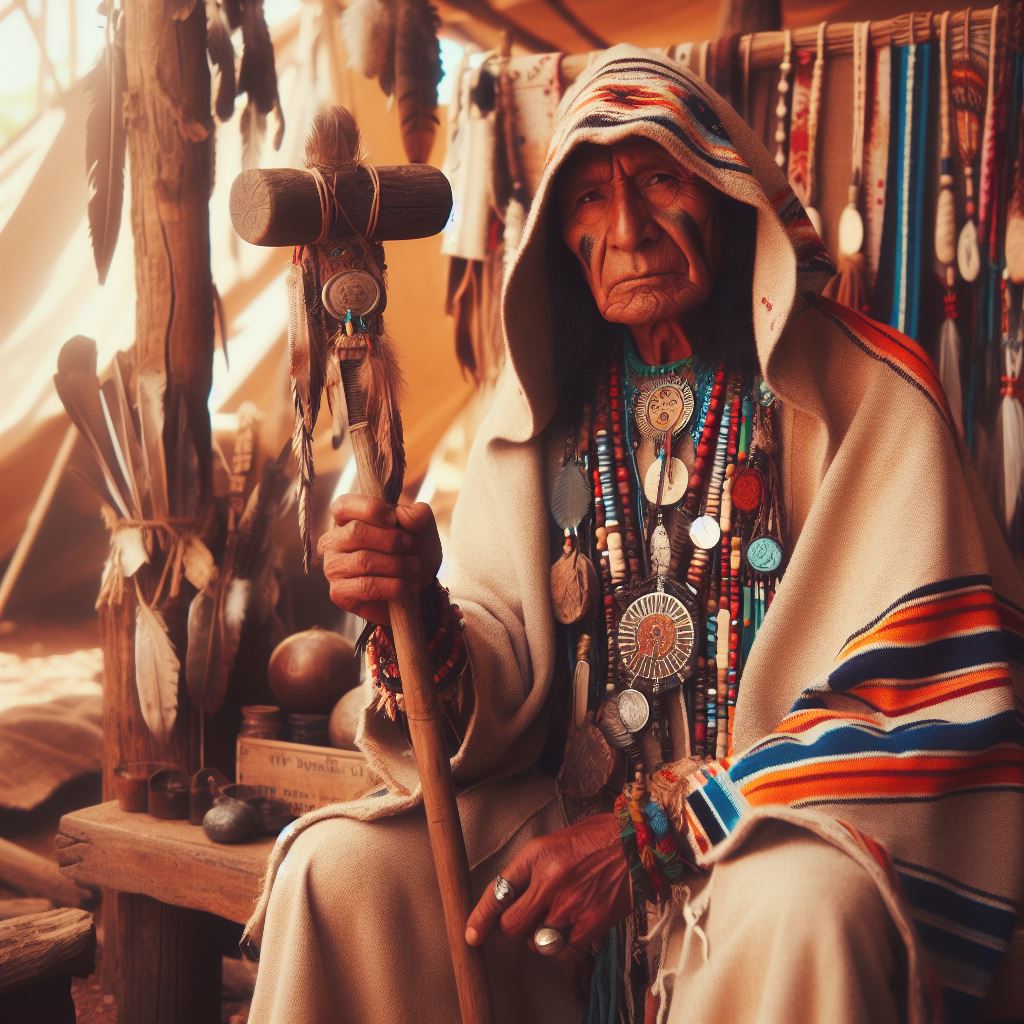NAVAJO NATION – In the heart of Navajo country, a seasoned medicine man finds himself weary of the misconceptions surrounding his sacred practices. Known for his profound connection to the spiritual realm, this individual is not only a guardian of ancient healing traditions but also a reluctant bearer of the label “skinwalker.”
The term “skinwalker” has, over time, become a catch-all phrase, erroneously applied to a variety of supernatural entities, including wendigos, fleshgaits, and forest spirits. This misappropriation has blurred the lines between distinct entities deeply rooted in Navajo mythology.
A skinwalker, or “yee naaldlooshii” in Navajo, refers specifically to a practitioner of the taboo art of transforming into animals. This shapeshifter is believed to harness dark magic for nefarious purposes, and the title is not to be taken lightly within Navajo culture. The misunderstanding arises when every eerie encounter with a supernatural entity is haphazardly branded as the work of a skinwalker.
Take, for instance, the wendigo, a creature from Algonquian folklore. Unlike the shapeshifting nature of a skinwalker, the wendigo is a malevolent spirit associated with winter, famine, and cannibalism. By indiscriminately labeling any encounter with the otherworldly as the work of a skinwalker, the rich tapestry of indigenous mythologies is diminished.

The call to action is clear: approach indigenous spirituality with respect and understanding. Instead of lumping together disparate entities, take the time to learn about each tribe’s unique myths and legends. Embrace the richness of their cultural heritage, recognizing that a wendigo is not a skinwalker, and a fleshgait is not a forest spirit.
In conclusion, let us embark on a journey of cultural sensitivity. Just as we wouldn’t equate a vampire with a werewolf in European folklore, let us not dilute the profound stories of Native American traditions. Our medicine man’s final words echo through the winds of Navajo country: “Words hold power, and the spirits are listening. Be mindful of how you speak of our sacred stories, for in doing so, you preserve the essence of our heritage.”
Lhana Lhak




